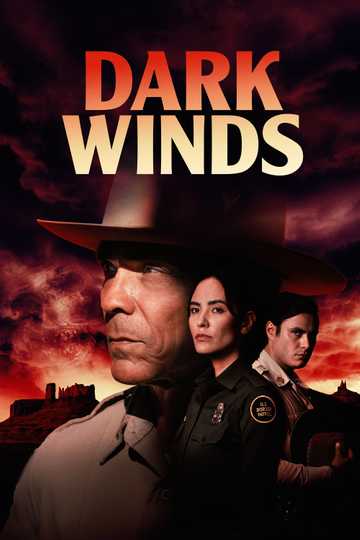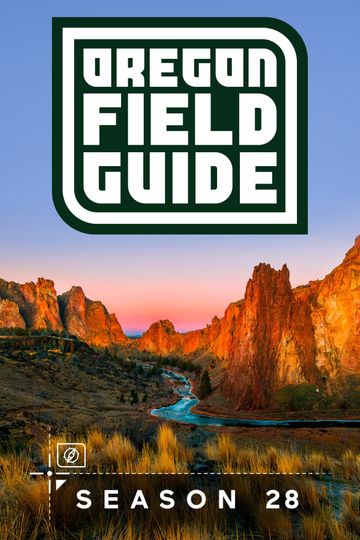Season 23 Episodes
1. Arctic White Geese, Paragliding Race, Treeverse
Arctic White Geese Hundreds of thousands of migrating geese create a blizzard which blankets the sky and covers farmers’ fields. The birds move north from Klamath Falls to Summer Lake to the farms near Burns during their annual migration to the Arctic. The hungry birds create one of the easiest, closest wildlife viewing opportunities in the state. Paragliding Race The Rat Race Paragliding event is like a yacht race in the sky, and attracts 160 of the best paragliding pilots in the world in a mesmerizing display of color and skill. Treeverse Filmmaker John Waller teams up with tall-tree arborists on an unprecedented “treeverse” through the canopy of Oregon white oaks near Canby. The 5-day quest will test the ingenuity and grit not only of the climbers but every shooter, rigger, and John himself. Why brave the cold, mud and storms of March in treetops? To find out if it can be done, sure. But also to celebrate the majestic beauty of these rapidly disappearing native groves.
2. Elk at Mount St. Helens, Lighthouse Photoessay, Snowkiting
Scientists investigate the thousands of elk who have returned to Mount St. Helens. Matt Thames combines his love of snowboarding with “kiting” to reach heights of 80-100 feet. Lighthouse Photoessay.
3. Bighorn Release, Photogeology, Willamette Valley Fen
Bighorn Release ODFW continues 60 years of bighorn restoration with their latest release in historic sheep country near the John Day Fossil Beds. Within months many of the sheep had spread out through remote canyons and newborn lambs were leaping with them up cliffs. But one group of rams wandered another direction, leading to a serious setback which resulted in their deaths. Photogeology Tour A beautiful tour of the stunning Jordan Craters and Leslie Gulch as we learn more about the wonders of Oregon geology. Willamette Valley Fen Have you ever heard of a fen? These unique geographic features used to be fairly common in Western Oregon and Washington but now they are rare. We visit what may be the last intact fen left in the Willamette Valley and see plant species that exist nowhere else.
4. Bald Eagle Recovery, Cyclocross, Jim Anderson
Bald Eagle Recovery More bald eagles spend the winter in Oregon than anywhere in the U.S. outside Alaska. The national symbol is no longer endangered. Yet there is one area in Oregon where eagles have trouble successfully hatching eggs. Cyclocross We head to Estacada to witness the bruising sport of Cyclocross, a sport that combines the grit of mountain biking, the speed of road racing, and the crashes of a steeplechase course. Race Organizer Brad Ross has been organizing the Cross Crusade series of races for years, races that now draw up to 1500 people per race. That’s a far cry from what we saw during Oregon Field Guide’s first story on cyclocross 15 years ago. Jim Anderson Jim Anderson is one of Oregon’s most beloved naturalists. We celebrate his legacy and the many stories he’s been involved with over the decades on Oregon Field Guide.
5. Nature Sound Recording, Silver Falls State Park, Zumwalt Cooperation
Nature Sounds Recording John Hartog is a nature sound recordist. Just as painters paint a landscape, or photographers photograph it, John heads into the countryside (Sauvie Island and Hart Mountain Antelope Refuge) with a microphone and a recording deck to capture the natural sounds of wild Oregon. These audio ‘snapshots’ in time tell us something about the place we live, and the wildlife that share it with us. Silver Falls State Park 1.5 million people every year make Silver Falls State Park the most popular state park in Oregon. They may be surprised to learn that 80 years ago that a town sat there, the area was full of stumps and the biggest waterfall was a daredevil's playground. Silver Falls was saved by a single-minded photographer determined to protect it for everyone to enjoy. Zumwalt Cooperation Despite a century of cattle grazing, Oregon's Zumwalt Prairie remains healthy. A new study by Oregon State University shows low to moderate levels of grazing does not harm the survival of ground nesting birds. The Nature Conservancy's Zumwalt Prairie Preserve also allows grazing in a rare partnership of ranchers and conservationists.
6. Avalanche Safety, Fishing Quotas, Music in Nature
Avalanche Safety We follow students taking a level-one avalanche course with regional expert Glenn Kessler. The course includes snow profile analysis, avalanche beacon drills and basic snow science. Fishing Quotas Join a trawler on the high seas as he makes the worst catch imaginable: highly restricted canary rockfish. He must handle the unwanted haul under a brand new set of rules imposed on the industry in 2011. Catch shares now give out individual quotas of fish and hold those trawlers accountable when they catch too many. It's the biggest change to west coast trawling in 50 years. Music in Nature We follow musicians Deklun and Pace from Mount Hood to the coast as they find natural homes for their unique Electronic/trumpet musical improvisations. With a 1000 watt sound system, a computer and a trumpet, they don’t play for crowds. They play for an audience of nature alone.
7. Columbia Gorge: The Fight for Paradise
Columbia Gorge: The Fight for Paradise As the Columbia River Gorge National Scenic Act turns 25, a look back at its dual mandate of protection and economic development.
8. Open Water Swimming, Pine Butterflies, Radon
Open Water Swimming When you think about competitive swimming you probably picture what you see at the Olympics. Long pools. One swimmer per lane. But many people prefer something different: swimming across open lakes. Late in the summer of 2011, Eel Lake near Coos Bay, Oregon featured some serious racing - and a goofy obstacle course. Pine Butterflies An exceedingly rare population explosion of pine butterflies fills the Malheur National Forest with a virtual snowstorm in August. The mysterious outbreak may occur for 2 or 3 years and then disappear for 3 decades. The beauty extracts a price: the butterflies, while caterpillars, ate needles off 250,000 acres of trees. Radon Public health authorities tell us that radon is the second leading cause of lung cancer in the US, and the highest among non-smokers. But scientists have only been aware of radon as a health hazard since the early 1980s. So, just how big a health risk is radon? We take a look at the geologic conditions that account for radon’s presence in Oregon as well as the current health science, testing and mitigation thinking on the subject.
9. Chetco River Revisited, Gold Fish, Muddy Boots
Chetco River Revisited Oregon Field Guide journeys back to the remote, Chetco river almost 10 years after the massive Biscuit fire engulfed the Chetco’s remarkable wilderness river canyon. We discover that the river remains as remote and difficult to access than it was before the fire, and yet it’s even more enticing. Gold Fish We follow a team of ODFW fish biologists as they try to stop one of the state’s most destructive invaders – gold fish. It turns out that the harmless gold fish most of us had as pets are far from harmless. In fact, if gold fish find their way into Central Oregon’s Crane Prairie reservoir, they could spread throughout the upper Deschutes watershed and destroy the region’s lucrative sport fishing economy. Muddy Boots Worms, chickens, bees and gardens of fresh veggies lure children to play and learn outdoors. Portland's Muddy Boots Family Nature Club tackles "nature deficit disorder" by getting kids away from video games into a world of wonder.
10. Beacon Rock Climbing, Ditch Fish, Newberry Crater Geothermal
Beacon Rock Climbing Jim Opdycke is the unofficial “mayor” of Beacon rock. He’s climbed this spectacular basalt monolith in the Columbia gorge for over 40 years and has contributed perhaps more than anyone else to the unique traditional, or traditional, climbing culture of Beacon. We join Jim on a climb up the 900 foot face of Beacon Rock, cameras in tow, and learn about the specialized style of climbing known as “trad”- considered the most pure of climbing styles. Ditch Fish Willamette Valley farmers learn that in addition to their intended crops, they’ve been raising fish in their fields for years and never knew it. Researchers found young native fish thriving in ditches that fill with water during the winter, an unrecognized habitat until recently. Newberry Crater Geothermal EGS, Enhanced Geothermal Systems, hopes to get hot water out of a dry well just outside the Newberry Crater. The experiment hopes to create massive reservoirs two miles under ground. The earth would heat the cold water injected into fissures in the rocks and pumps would bring the hot water back out for energy production.
11. Balloon Archaeology, Biscuit Fire 10 Years Later, Collier Glacier
Balloon Archaeology Archaeologists trade working on hands and knees for a viewpoint floating high overhead. Rare access to a helium balloon and remote controlled camera provides the clearest view of the most intriguing discovery in Oregon in years: stone circles that resemble the medicine wheels found in Wyoming and farther east. Biscuit Fire 10 Years Later Bernard Bormann, with the Pacific Northwest Research station, had been studying the forests’ of the Siskiyou mountains for years. When the 500,000 acre Biscuit fire burned through his research plots, he first thought all was lost. But in the 10 years since the fire, he’s been able to compare life before and after fire to reveal an amazing amount of new information about how life returns to the forest after fire. Collier Glacier For more than a century, photographers have been taking pictures of the Three Sisters’ Collier Glacier. What they didn’t know was they were also documenting the dramatic retreat of Oregon’s largest glacier. USGS Geologist Jim O’Connor takes us to this beautiful area to take this year’s photo and learn what it all means from PSU glaciologist Andrew Fountain.
12. Kite Festival, Trees and Pollution, Ultralight Hiking
Kite Festival Tonight we have a story about a sport that includes floating.. fighting.. and synchronized dancing. That's one way to say: this isn't your grandfather's way to fly kites. Field Guide's Vince Patton and videographer Michael Bendixen found kites from two inches wide to the size of a Macy's Thanksgiving Day Parade balloon… at the largest kite festival in Oregon, in Lincoln City. Trees and Pollution Emerging research shows that if plants and trees are planted in certain locations, they can make air pollution worse. The plants emit isoprenes which combine with man-made pollutants to create ozone. Ultralight Hiking Clint “Lint” Bunting came to backpacking late in life, but once he took to it he went “all in”. He has hiked over 14,000 miles, including all of the big American Thru hikes: the Appalachian Trail, Pacific Crest Trail, Ice Age Trail and the Continental divide Trail, some of them twice! What’s more, he now hikes for weeks at a time with an 8-pound pack, significantly less than the 40-50 pounds many backpackers typically carry.
13. Bug Chicks, Canoe Journey, Cape Arago photoessay, Pacific Crest Trail
Bug Chicks Kristie Reddick and Jessica Honaker are two entomologists on a mission. They want people to think differently about bugs. Canoe Journey Tribal canoe journey and science connect in Salish Sea. Cape Arago Photo Essay Revisited Videographer Nick Fisher beautifully captures sunsets, rolling clouds and stunning shots of the beach at high and low tide. Pacific Crest Trail Think about what it takes to hike over 2600 miles in a summer. Now, think about what it takes to do it as an 11 year old! That’s what one father/daughter team from Salem did one summer as they hiked the entire Pacific Crest trail from Mexico to Canada. And they shared with us an amazing story of their adventure.
14. Mount Hood Climbing Oregon's Highest Peak
From all around our region, Mt Hood sits on the horizon like a tantalizing gem. Who hasn’t dreamed of climbing it? In fact, people come from around world to do just that. But as Oregonians, we’re lucky enough to have it in our own back yard. Tonight, Jule Gilfillan explores the history, challenges and rewards of climbing our highest peak.
























